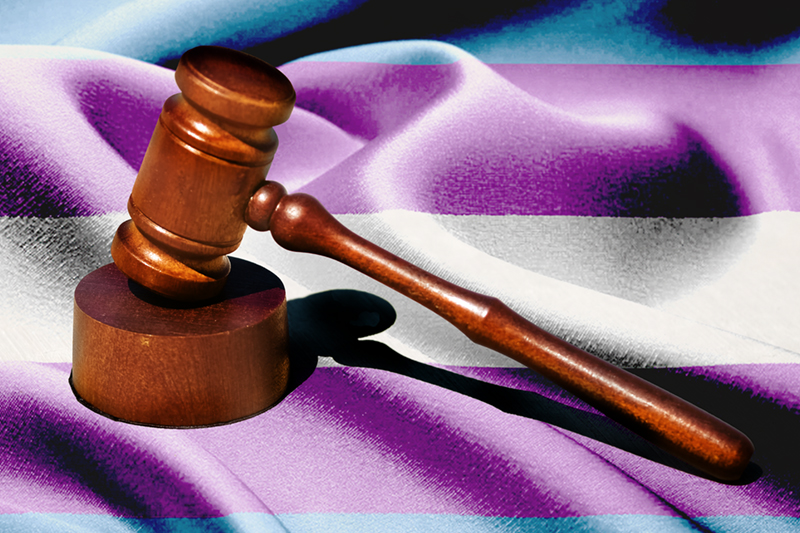American Academy of Pediatrics Backs Gender-Affirming Care
Medical group supports gender-affirming treatments for transgender minors, but also calls for further review of medical evidence.

The American Academy of Pediatrics unanimously reaffirmed its support for gender-affirming health care for transgender-identifying youth struggling with severe gender dysphoria, while calling for a review of the medical evidence underlying transition-related treatments.
Last week, at a meeting in Itasca, Illinois, all 16 board members of the medical advocacy group, representing about 67,000 practitioners, backed recommended treatments, such as puberty blockers and hormone therapy.
The board voted to reaffirm the organization’s position from 2018, in which hormone therapy is recommended for those suffering from severe gender dysphoria, reports The New York Times.
Hormones, puberty blockers, and surgery — the latter of which is rarely recommended for minors, even under a gender-affirming model — have been banned on minors in 19 states.
Some of those states have also imposed additional restrictions that prohibit transgender adults on Medicaid from receiving treatments or having the cost of them covered, thereby forcing trans individuals to pay out of pocket.
But the AAP’s board also took an extra step to commission a “systematic review” of medical research on the treatments, following some European countries’ recent decision to restrict gender-affirming treatments based on research finding that treating gender dysphoria with hormones may not be as effective or as helpful for adolescents.
“The board has confidence that the existing evidence is such that the current policy is appropriate,” Mark Del Monte, the chief executive of the American Academy of Pediatrics, told the New York Times following the decision. “At the same time, the board recognized that additional detail would be helpful here.”
Regarding the policy changes in countries like England and Sweden seeking to delay medical interventions for dysphoric adolescents, Del Monte said, “they engaged in their process, we’re engaging in our process.”
Once the medical evidence for interventions is reviewed, the group will issue updated clinical guidance and recommendations for physicians on how best to treat youth suffering from gender dysphoria.
Critics of gender-affirming care, including some pediatricians, have called for a closer look at the medical evidence undergirding the use of hormones, with some expressing alarm at the rapidly increasing number of adolescents who identify as transgender or nonbinary.
This has led some to speculate that feelings of gender dysphoria or the desire to identify as transgender is being driven by peer pressure and larger societal phenomena, known as the “social contagion” theory.
Backers of this theory believe that many trans-identifying youth will ultimately desist in their gender-nonconforming identity or behavior and conform to behavioral-based stereotypes based on their birth sex.
As a result, they argue that starting such individuals on hormone therapy allegedly does more long-term physical damage than declining to pursue medical interventions, thereby making any medical interventions inappropriate for dysphoric minors.
Opponents of gender-affirming care also argue that the treatments remain experimental and that minors are not mature enough to consent to such interventions.
The American Academy of Pediatrics has generally condemned the state-level bans on gender-affirming care as an example of overreaching government run amok, intruding on the personal family and medical decisions being made on minors’ behalf. The organization has also filed several briefs to support lawsuits seeking to overturn such state bans.
In its 2018 position statement, the group recommended that health insurers cover the cost of gender-affirming care on the grounds that, for individuals suffering from gender dysphoria, such treatments are a form of medically necessary care.
That position was also based on evidence suggesting that gender-affirming care might alleviate some of the high rates of anxiety, depression, and suicidal ideation experienced by trans-identifying adolescents.
The group’s most recent position statement will remain valid for five years before it comes up for review again, at which point the board may decide — based on the review of medical evidence in support of recommending gender-affirming treatments — whether to reaffirm, revise, or scuttle that position entirely.
Dr. Gordon Guyatt, a clinical epidemiologist at McMaster University who has been one of the chief critics of the use of gender-affirming care on minors, told the Times he believes that it was wrong for the AAP to reaffirm support for gender-affirming care before a full review of medical evidence is completed.
He also predicted that the review would ultimately find little evidence supporting such interventions on minors, telling the newspaper: “The policies of the Europeans are much more aligned with the evidence than are the Americans.'”
Dr. Marci Bowers, a gynecologic and reconstructive surgeon who serves as president of the World Professional Association for Transgender Health, which provides its own non-binding recommendations on medical standards for treating transgender patients, praised the decision to reaffirm its support for gender-affirming care.
“They know this population,” Bowers, a transgender woman, told the Times, noting that anecdotal evidence appears to back the idea that access to gender-affirming care helps reduce feelings of dysphoria. But she also appeared to support reviewing the medical evidence undergirding such treatments.
“What they’re saying is this population needs to be studied,” she said, referring to European policies recommending a cautious approach before pursuing gender-affirming care. “And I agree with that.”
Support Metro Weekly’s Journalism
These are challenging times for news organizations. And yet it’s crucial we stay active and provide vital resources and information to both our local readers and the world. So won’t you please take a moment and consider supporting Metro Weekly with a membership? For as little as $5 a month, you can help ensure Metro Weekly magazine and MetroWeekly.com remain free, viable resources as we provide the best, most diverse, culturally-resonant LGBTQ coverage in both the D.C. region and around the world. Memberships come with exclusive perks and discounts, your own personal digital delivery of each week’s magazine (and an archive), access to our Member's Lounge when it launches this fall, and exclusive members-only items like Metro Weekly Membership Mugs and Tote Bags! Check out all our membership levels here and please join us today!



























You must be logged in to post a comment.